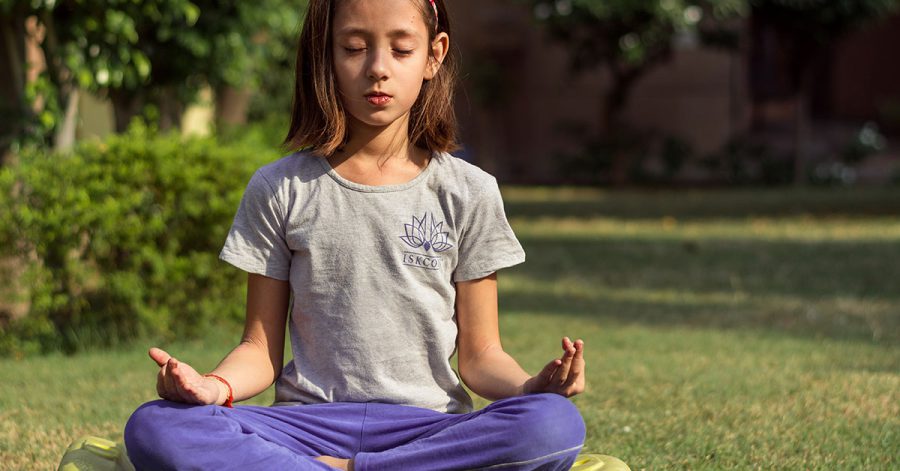ARTICLES, HEALTHY LIVING & WELL BEING. EATING DISORDERS
The Importance of Being Mindful


It’s very likely that you’ve heard the term ‘mindfulness’ before. The term seems to be everywhere and is touted as ‘the new yoga’ or the ‘answer to stress’. But what is mindfulness? Mindfulness is our ability to be fully present in a moment. Jon Kabat-Zinn is a scientist and creator of a scientifically based therapeutic meditation practice called ‘Mindful Based Stress Reduction’ (MBSR). In a nutshell, this is the practice of paying attention on purpose.
Mindfulness begins with paying attention to your breath. This allows you to focus on the here-and-now, the exact moment you’re in. When you’re focused only on your breath, you aren’t thinking about your worries, and you aren’t allowing yourself to be overwhelmed. Ultimately, through mindfulness, you are able to directly observe your frustrations and disturbing thoughts without being affected by them.
Over the last few years, mindfulness has been used as a treatment for children and youth suffering from Anxiety to ADHD and beyond. The results are proving to be astounding.
Mindfulness for young children
Explaining mindfulness to a child might seem difficult. However, it’s really quite simple. Again, start with the breath. Call to their attention how it feels to breathe in — the expansion of the chest — and how it feels to breathe out — the collapsing of the chest. Next, ask them to notice the stillness between their breaths. This place is their quiet place. Explain to them that their quiet place is always with them. Whenever they feel emotions like anger, sadness, and excitement, frustration, or happiness, they can go to their quiet place to observe those emotions.
Dr. Amy Saltzman is a holistic physician and mindfulness coach in California. She works with — and teaches mindfulness to — a variety of children and youths with a range of challenges. She conducted a study with researchers at Stanford University. They found that after 8 weeks of mindfulness training elementary students (grades 4-6) showed a decrease in anxiety and an increase in their ability to focus. They reacted less emotionally, and they were better able to rationally choose their responses.
Mindfulness for teenagers
Teenagers can benefit tremendously from mindfulness training. Diana Winston is the director of ‘Mindfulness Education’ at UCLA’s Mindful Awareness Research Center. In 1993 she started taking teens on what she calls the ‘mindfulness intensive camp’. Over 20 years later, that camp is still going strong. The lives of teens are being transformed.
Mindfulness offer stress reduction, and self-acceptance — these are just two major perks for teens in the midst of the drama and turmoil-filled adolescent years. One teen struggled with ADD and depression. On the last day of camp, she approached Diana and said: “Everything is different. I was really depressed. My boyfriend broke up with me and it’s been so hard but I’m finally understanding that I’m not my thoughts.” This realization for her was groundbreaking — and the concept itself is freeing.
I am not my thoughts
This concept of not being defined by how you’re feeling is one of the many positive outcomes of mindfulness. When you understand that you are not your thoughts or feelings, you are better able to observe them and choose an appropriate response. When you know your thoughts are not your defining feature you can put space between external stimulus and your response. In the moment, how we are feeling can be all consuming. For example, when you first wake up in the morning you may feel exhausted. You may worry that your whole day will be dictated by this exhaustion. In actuality, you may feel alert and ready to go within minutes.
Think of your thoughts and feelings like clouds in the sky of your mind. They easily drift in, but they can just as easily dissipate. It’s your choice if you want to get caught up in them or not.
Using mindfulness to manage anxiety
Childhood anxiety is a precursor to many other, larger, struggles in teen years and even into adulthood. So if childhood anxiety can be easily managed, then many of these other issues can be avoided, or similarly controlled. It is a growing trend to teach mindfulness to children and teens, and that is a good thing! It’s coming up often in therapy, but it’s also becoming part of the curriculum in both special and general education classes.
It’s easy to see that our society is a bit out of control. We’re in a fast-paced, never-ending cycle of work, stress, and worry. Everyone is looking for a way to break that cycle and find some peace. Mindfulness is one way to do that.







